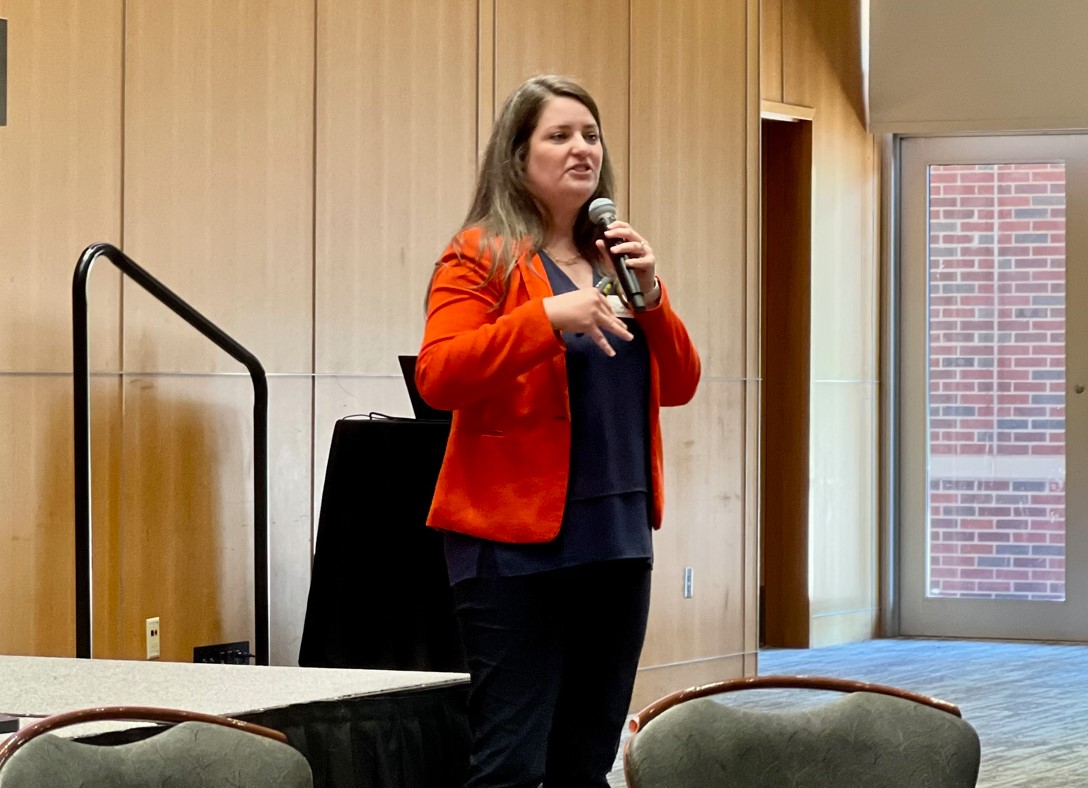Tue, 25 Oct 2022 10:18:59 CDT

KC Sheperd, Farm Director, got the chance to visit with senior economist in the Regional Affairs Department of the Federal Reserve Bank of Kansas City, Courtney Cowley, talking about the intensification of supply chain issues due to different factors such as the pandemic and the Russia and Ukraine war.
Cowley said conditions are not as poor as they were coming out of the pandemic, and we have rebalanced in some areas.
“Inventories were tight and are still tight, which has kind of exacerbated some of these supply chain issues,” Cowley said.
Challenges this year, such as drought, reduced supplies, and difficulty transporting barges, Cowley said, are starting to send things in the wrong direction.
“We had started to see some abatement, but I am concerned that drought is starting to cause some greater disruptions in the supply chain and difficulty for producers,” Cowley said.
Cowley said that there are low levels on the Mississippi river due to the drought, which has ultimately made barge traffic more difficult. There are reports of backlogs along the river, Cowley said, which ultimately can result in lower local prices upriver for producers for the commodities they are starting to harvest, such as corn and soybeans.
“Lower river levels make it more expensive to transport those products down the river, so we are seeing higher prices at the gulf port and lower prices locally because of that transportation premium we are seeing as a result of drought,” Cowley said.
Oklahoma’s economy, Cowley said, is seeing a greater decline in farm income compared to other states, mostly attributed to the drought. Cattle prices increasing has likely helped producers in Oklahoma more recently, Cowley said, but the drought continues to cause disproportionate effects in Oklahoma compared to other areas of the country.
“In 2019, the ag economy was coming out of a six or seven-year downturn, and coming into 2020, we were expecting another year of low commodity prices, low farm income, lower working capital, and then the pandemic hit in February, and March causing widespread disruptions in commodities,” Cowley said.
In the second half of 2020, Cowley said commodity prices for almost everything, but cattle increased rapidly as economies were bouncing back from the effects of the pandemic and demand increased for agricultural products.
“The supply has been really slow to recover and catch up, so even leading up to Russia and Ukraine war, we were still seeing demand for agriculture and food products outpace supply, which was causing a lot of imbalances in the system and some higher prices and inflation for producers, but also for consumers,” Cowley said.
A large portion of the prices consumers pay for food, Cowley said, come from labor in the supply chain.
“I think that we have seen a lot of pressure in that category and how that affects cattle producers is if packing plants aren’t able to run at full capacity because they can’t find the labor, then that just reduces the demand that they have for cattle from producers,” Cowley said. “Especially when we are in an environment where producers may be looking to reduce herd sizes or liquidate just because feed is really expensive and really hard to come by.”
Producers continue to face difficulty on the fertilizer side of things, Cowley said, which is a big concern moving forward.
“With Europe, Russia, being a major fertilizer producer, and producer of fertilizer input, those inputs are going to go to the highest need first, which is heating people’s homes in the winter,” Cowley said. “So, we do have concerns about maybe some fertilizer plants shutting down overseas and what that might look like in terms of supply for fertilizer going into the next planting season.”
In 2023, Cowley said, we are looking at much higher prices.
“We are hoping for better weather in 2023, or it could be really concerning, particularly in the state of Oklahoma,” Cowley said.
Click the LISTEN BAR below to listen to KC Sheperd and Courtney Cowley talking supply chain issues.

















